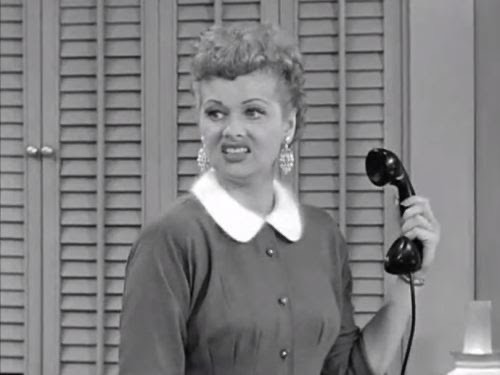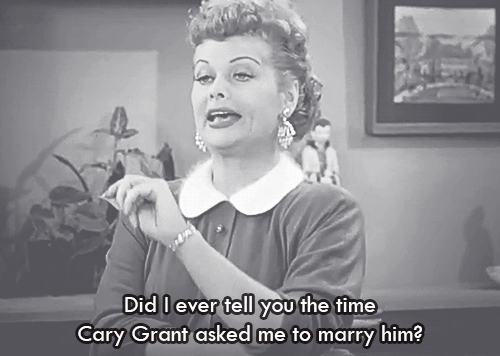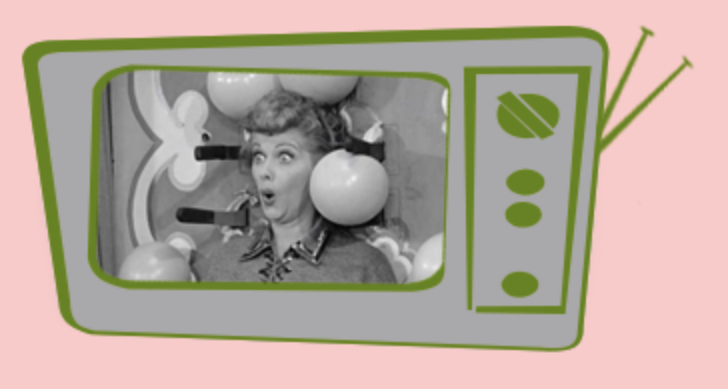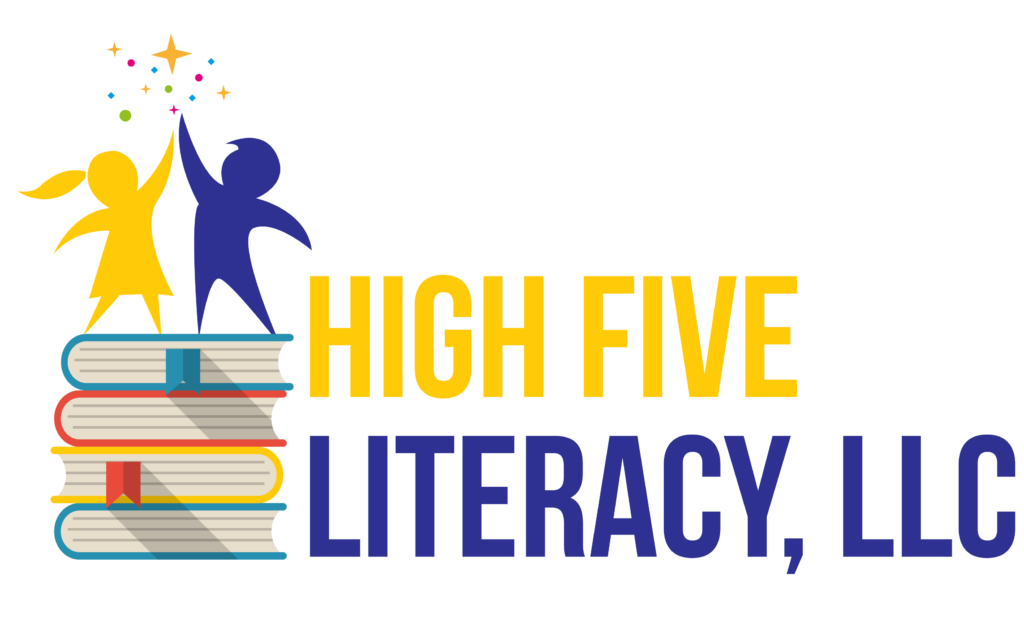
After reading Lucy Calkins’ ridiculous and shameful “open letter” posted on the Teachers College Reading and Writing website, I was reminded of an episode of my favorite childhood show, I Love Lucy. The episode, entitled “Lucy Tells the Truth,” parallels Ms. Calkins’ attempt at damage control and spin. On one hand, she highlights changes she intends to make to her program to align with science, while on the other insisting that changing only 2% of her program is necessary. As I’ve said previously, this is nothing more than “rebranding.” Her letter is so pathetic and nonsensical it screams of incompetence and corruption. Isn’t it “TIME TO BURN THE BOAT”?
Below is my satirical twist on the “Lucy Tells the Truth” episode using Ms. Calkins’ own words.
(I Love Lucy theme music plays)
Lucy: Ya know, Ethel, I’ve been a long supporter of strong and systematic phonics instruction! Remind me sometime to tell you about my experience. For decades before I developed Units of Study in Phonics, I helped schools use Fundations, Words Their Way and other phonics curricula.
Come on, Ethel, let’s get some coffee.
Ricky: Hey, just a minute. You were a supporter of systematic phonics instruction? Huh?
Lucy: It was before I met you, dear. Of course, reading and writing workshops have always been phonics-rich. Come on, Ethel.
Ricky: Now, wait, wait a minute. This is very interesting. How did you “help” schools use phonics??
Ethel: Oh, leave her alone, Ricky. She’s just exaggerating as usual.
Lucy: I am not.
Ricky: Well, how did you help schools with phonics curricula?
Lucy: I taught them the alphabet.
Ricky: The alphabet?
Lucy: Yes, the alphabet. I would go into the schools and lead the children in the ABC song.
Ricky: Yeah? And then what did you do?
Lucy: Well, maybe I wasn’t exactly the lead singer, but would you believe I was given a little owl on a stick and had the children echo back the alphabet to the teacher?
Ethel: Lucy, why don’t you tell the truth? You know that you were never a phonics supporter.
Lucy: I was too. Anyway, after reading the books and articles recommended by voices in the Science of Reading movement and studying with the psychologists and neuroscientists at CMI we did make two strands of revisions to our curriculum.
Ethel: Why do you do it? You always fib and you always get caught.
Lucy: I do not fib. I never told a fib in my life. First, we strengthened the phonological awareness portion by adding a year-long phonological awareness curriculum. Of course, we have always supported phonological awareness.
Ethel: Oh, there she goes again.
Lucy: Well, it isn’t fibbing. I just like to… color things a little.
Ricky: Well, why didn’t you say so? I’ll buy you some watercolors.
Lucy: Oh, you’re all very funny. Because this is such important work for all kids in kindergarten and first grade (and is especially necessary for the 5-15% of kids with dyslexia), we’ve also added a very basic, very quick assessment where teachers ask kids to read a few words in order to quickly detect whether their knowledge of phonics is growing. This assessment allows teachers to give extra support to kids who need it.
(Doorbell rings. Delivery man enters with a box of decodable books).
Lucy: Decodable books! Oh, Ricky, you shouldn’t have.
Ricky: I din’t.
Lucy: You “din’t”?
Ricky: Who’s sending you decodable books?
Lucy: “Get well quick. Love, F and P.” Huh?? I feel fine. Oh, I know. Hahaha, they probably thought I wasn’t feeling well when I told them we’ve written some decodable texts for the phonics curriculum.
Ethel: There’s another whopper.
Lucy: Oh, now, what’s the matter with that? The fact that we see a place for decodable books is not new. But our thoughts about decodable books are “nuanced.” Those books are no cure-all. That’s just a little fib with my besties.
Ricky: Honey, you know you never liked decodable books. Why didn’t you just tell them the truth?
Lucy: You can’t tell people the truth. They think you’re lying. You have to lie to make them think you’re telling the truth. Ugh… my friends Freddy and Jim have warned that many decodable books are less than ideal because they don’t follow typical oral language patterns, and they often feature decodable words like “jut” and “sod” that kids don’t know. This means the books won’t make total sense even when decoded successfully, sending some kids the counter-productive message that reading is about calling words rather than about making meaning. Above all, kids need to monitor for sense, and if reading accurately does not lead to sense, that hinders their progress. Comprende?
Ricky: You got to cut it out.
Fred: Now, now, Ricky, don’t be too tough on Lucy.
Lucy: Thanks, Fred.
Fred: She can’t help it if she’s a liar.
Lucy: Well! We do not want kids reading books that make little or no sense. But, then again, many of the A, B, C leveled books also make little or no sense. Am I making sense?
Ethel: No. “Skip it.” Just “cross-check for meaning” instead.
Lucy: I could tell the absolute truth like everybody else…
Ricky: Honey, you couldn’t tell the absolute truth if your whole kingdom depended on it.
Lucy: I am telling the truth. TCRWP would love to have meaningful decodable books in kids’ baggies starting in about January in kindergarten, along with other books, and, for kids who are tentative as readers, and for everyone to see so that they will leave me alone.
Ricky: Do you realize that you just made no sense whatsoever. I’ll tell you what. I’ll bet you that you can’t tell the truth for, uh…
Lucy: For how long, one week? You won’t be surprised that, yes, we are writing a whole series of meaningful, decodable books for readers in kindergarten and early first grade. These will be books that follow kids’ oral language patterns, that make sense, and that are culturally relevant.
Ricky: You don’t say… culturally relevant, huh? I’ll make it easy on you– one day, 24 hours.
Lucy: Okay. How much you want to bet?
Ricky: Hmmm, how about the money you make from your workshop when you tell teachers to use only the leveled books that make sense and the decodable books that don’t make sense. Does that make sense?
Ethel: Can I have a piece of that action?
Fred: I’d like a little of that, too.
Lucy: It’s just that there are so few sure ways of making a buck these days. What will F and P think of me? Freddy and Jim warned me… Oh, fine. Okay, you got yourself a bet. Did I ever tell you the time that Cary Grant asked me to marry him? I just thought I’d have one last fib for the road.

Ethel: I can hardly wait to hear you tomorrow afternoon, Lucy. “We do not advocate for using only decodable books, nor for all decodable books.” HahaHa!!
Lucy: Why? What’s happening tomorrow?
Ethel: We’re playing bridge with F and P.
Lucy: Oh, no, no, no. I can’t spend the afternoon with three women and have to tell the truth. I’ll call them and tell them I’m sick.
THE NEXT DAY (Doorbell rings. F and P enter to play cards)
F: Hi Lucy. How are you? What has been going on with you? Are you seriously going to come out with “meaningful decodable books?” Don’t tell me you are becoming one of those “phonics-centric” people??
P: I thought we are in this together. Reading is meaning. Remember, phonics is supposed to be lean and efficient. You can’t keep doing this to us, Lucy. Now that you think decodable books should be used, where does that leave us? How do we tell teachers to give kids guessing strategies if you are sending out the message that kids should be looking at letters??
Lucy: We have refined and amended our thinking about the ways we suggest teachers prompt kids when they get stuck on an unfamiliar word. For example, when a child is reading a sentence such as, “It was cold, so I put on my jacket,” and the child gets stuck on jacket, we now suggest the teacher nudge by saying, “Look at the letters, have a go with that word,” rather than saying, “Think about what’s happening. What might the boy put on?” By prompting students to use phonics at that moment of challenge, we encourage them to apply and practice the phonics they know.
F: Yep. That changes the whole mood of the room. “Have a go with that word.” I am writing that down.
P: My, I’ll say. We don’t have to throw out everything we had that was based on the Three Cueing System!
Lucy: Of course, the child may say something like jake-it in which case the teacher will need to follow up the phonics prompt with a prompt for meaning, “Does that make sense?” Then the child will use their understanding of the context to correct the mispronounced word so that they can fully comprehend the passage. This correction, too, adds to their phonics experience. That is, even when phonics is centered, meaning will never not be important, as the goal of reading is to understand and to learn.
Ethel: Gee, isn’t this something, huh? Spin it, Sister!!
F: This is really something, isn’t it? We can still ask kids, “Does that make sense?” Phew…
Lucy: Teachers need aim for the reader to be reading the text for meaning first and foremost—which is apt to happen if the child has oriented herself to the text, is envisioning, is integrating the different content conveyed by the words and the pictures etc., so, when the child comes to “jacket,” the child will already be thinking the word is apt to be an article of clothing. So, meaning is still the reader’s focus.
Ethel: You are good. Really good. I could see why Cary Grant wanted to marry you.
Lucy: But, there is a moment when phonics knowledge should be prioritized—the moment when the child encounters an unfamiliar word. What do you think? Do you like it?
P: Oh, I think it’s just lovely. It sounds so intellectual.
Lucy: While the journalists will try to persuade you otherwise (controversy gets more eyes on the page than consensus), this is actually a small shift in our thinking, one that applies to the way that a teacher coaches a child who is in the early stages of reading development—which, if using Guided Reading Levels, aligns with approximately levels C through H. Some kids progress though the levels at pace, and for them this shift doesn’t really matter. However, it is an important shift to make for those readers who’ve not picked up the phonics knowledge they need and for working with kids who have dyslexia.
F: It’s brilliant. It’s so colorful. You are a true artist. You even said the “D” word.
Ethel: What do you think, Lucy? Is this truly what you think? Remember the workshop money… I think I might start planning a trip to Aruba.
Lucy: Uh… ya know what? I can’t do this. Here’s the TRUTH:
What stays the same in our work with K-1 readers? 98% of it. We still support the rich comprehension work that has always been a part of workshop teaching. We still support kids reading with agency. We still support choice and rereading and reading to learn and talking about books. We still support the reciprocity between writing and reading. We still support kids learning letters, onsets and rimes, spelling patterns, and high frequency words as we have taught them. We still support using the learning progressions and assessment-based teaching. We still support kids reading with phonics, fluency, and comprehension. We still support kids seeing themselves in books and learning about others through reading. We still support kids learning to lead richly literate lives.
Ethel: Oh, Lucy, don’t be bashful. Just tell F and P what you said to me about them.
Lucy: Oh, they don’t want my little old opinion.
F: Oh, but I do, Lucy.
P: Come on, now.
Lucy: Well, uh… this whole year doesn’t make sense. Does this make sense?
Ethel: No, seriously, Lucy.
Lucy: Well, F and P, nothing personal, but I think the jig is up. The public is catching on. I think they know that both of you do much more harm to kids than I do. They know that you are responsible for books containing harmful stereotypes. Ahhh… there! I said it!!

Ethel: I think there’s something you ought to know. Last night, we bet Lucy that she couldn’t tell the truth for 24 hours.
F and P: Oh, no. (laughing)
Lucy: Come on, let’s play bridge. That is if anyone still wants to play with me. It feels wonderful to tell the truth.
F: Yeah. Let’s play. Who cares about the 65% anyway.
Faith Borkowsky is the founder of High Five Literacy and Academic Coaching with over thirty years of experience as a classroom teacher, reading and learning specialist, regional literacy coach, administrator, and tutor. Ms. Borkowsky is a Certified Dyslexia Practitioner and provides professional development for teachers and school districts, as well as parent workshops, presentations, and private consultations. Ms. Borkowsky is the author of the award-winning book, Failing Students or Failing Schools? A Parent’s Guide to Reading Instruction and Intervention and the “If Only I Would Have Known…” series. She is also a board member of Teach My Kid to Read, a 501(c) non-profit organization with a mission to support and empower students, teachers, and parents through education so all kids, including those with dyslexia, learn to read.

1 Comment. Leave new
Faith, This is so funny, but sad at the same time. What a good idea to frame it in this way.